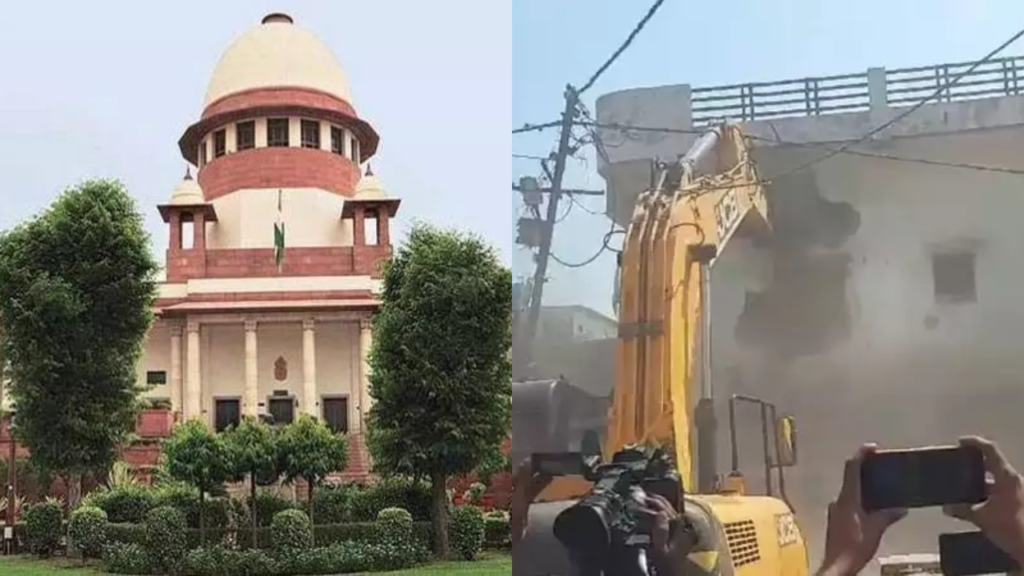Supreme Court Issues Notice on Demolition After ‘Anti-India Slogans’


The Supreme Court of India has issued a notice to the Maharashtra government and the Malvan Municipal Council regarding the demolition of a house and shop allegedly linked to an incident where a minor was accused of shouting “anti-India slogans.” The court’s intervention comes after a petition was filed claiming that the demolition was unlawful and violated due process.
The controversy began on February 23, 2025, after an India-Pakistan Champions Trophy cricket match. Reports emerged that a 15-year-old boy allegedly chanted anti-India slogans, sparking outrage in the local community. Soon after, authorities in Sindhudurg district demolished the residence and shop of Kitabulla Hamidulla Khan, the boy’s father, citing unauthorized construction as the reason.
The demolition took place without prior notice, raising questions about whether it was a punitive measure rather than a routine administrative action. This led Khan to file a contempt petition in the Supreme Court, alleging that the demolition violated his fundamental rights and was an instance of “bulldozer justice.”
On March 24, 2025, the Supreme Court took cognizance of the petition and issued notices to the Maharashtra government and the Malvan Municipal Council. The court sought an explanation for the demolition and questioned whether due process had been followed.
The court emphasized that property demolitions must comply with legal procedures, including issuing proper notices and allowing the affected party to present their case. It also referred to its earlier guidelines, which prohibit using demolitions as punitive measures without legal justification.
The case has reignited debates over the use of demolitions as a tool for punishment. Critics argue that such actions often target specific communities and violate constitutional rights. Legal experts point out that demolitions must follow proper procedures, regardless of the circumstances leading to the action.
In its previous rulings, the Supreme Court has stressed that administrative authorities cannot bypass legal processes. In November 2024, the court had issued specific guidelines against “arbitrary demolitions,” stating that:
Any demolition must be preceded by a legal notice.
The affected party should have an opportunity to appeal.
Demolitions cannot be used as a punitive response to alleged crimes.
The petition argues that these guidelines were ignored in this case, making the demolition unlawful.
The incident has sparked a political debate, with opposition parties criticizing the Maharashtra government for allegedly misusing its authority. Civil rights groups have also condemned the demolition, calling it a violation of human rights.
On the other hand, supporters of the demolition argue that the structure was illegally constructed and that legal action was justified. However, the timing of the demolition, closely following the “anti-India slogans” controversy, has led to suspicions that it was an act of retaliation.